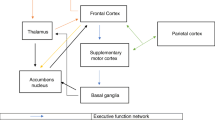Abstract
Diagnosis of behavioral variant frontotemporal dementia (bvFTD) can be especially challenging during the early stages for several reasons, including the fact that (a) behavioral disturbances in bvFTD can mimic the symptomatic profile of psychiatric disorders; (b) neuropsychological performance may be relatively spared; and (c) changes in structural neuroimaging may go undetected. Most frequently, bvFTD is not included as part of medical or residency training outside the field of cognitive neurology. The present study aimed at examining bvFTD-related practices concerning academic and professional training, diagnosis, and treatment across Latin America. We surveyed the academic and professional aspects of clinical practice related to bvFTD of 596 physicians from different fields throughout the continent. We discuss several aspects concerning Latin American physicians’ training on dementia and bvFTD, the way in which they approach the differential diagnosis of bvFTD, and their most frequent strategies for the treatment of this condition. We conclude that information about bvFTD deserves more attention in both undergraduate and postgraduate medical education in Latin America, and that understanding clinical practices related to FTD can help design more efficient training programs for physicians in this and other world regions.
Similar content being viewed by others
References
Boxer AL, Lipton AM, Womack K, Merrilees J, Neuhaus J, Pavlic D et al (2009) An open-label study of memantine treatment in 3 subtypes of frontotemporal lobar degeneration. Alzheimer Dis Assoc Disord 23(3):211–217. doi:10.1097/WAD.0b013e318197852f
Bozeat S, Gregory CA, Ralph MA, Hodges JR (2000) Which neuropsychiatric and behavioural features distinguish frontal and temporal variants of frontotemporal dementia from Alzheimer's disease? J Neurol Neurosurg Psychiatry 69(2):178–186
Davies RR, Kipps CM, Mitchell J, Kril JJ, Halliday GM, Hodges JR (2006) Progression in frontotemporal dementia: identifying a benign behavioral variant by magnetic resonance imaging. Arch Neurol 63(11):1627–1631. doi:10.1001/archneur.63.11.1627
Diehl-Schmid J, Förstl H, Perneczky R, Pohl C, Kurz A (2008) A 6-month open-label study of memantine in patients with frontotemporal dementia. Int J Geriatr Psychiatry 23(7):754–759. doi:10.1002/gps.1973
Graham A, Hodges JR (2008) Frontotemporal dementia. Psychiatry 7(1):24–28. doi:10.1016/j.mppsy.2007.11.008
Grinberg A, Lagunoff J, Phillips D, Stern B, Goodman M, Chow T (2007) Multidisciplinary design and implementation of a day program specialized for the frontotemporal dementias. Am j Alzheimer's Dis Other Dement 22(6):499–506. doi:10.1177/1533317507308780
Hodges JR, Miller B (2001) The neuropsychology of frontal variant frontotemporal dementia and semantic dementia. Introduction to the special topic papers: Part II. Neurocase 7(2):113–121. doi:10.1093/neucas/7.2.113
Kavirajan H (2009) Memantine: a comprehensive review of safety and efficacy. Expert Opin Drug Saf 8(1):89–109. doi:10.1517/14740330802528420
Kertesz A, McMonagle P, Blair M, Davidson W, Munoz DG (2005) The evolution and pathology of frontotemporal dementia. Brain 128(9):1996–2005
Kipps CM, Davies RR, Mitchell J, Kril JJ, Halliday GM, Hodges JR (2007) Clinical significance of lobar atrophy in frontotemporal dementia: application of an MRI visual rating scale. Dement Geriatr Cogn Disord 23(5):334–342. doi:10.1159/000100973
Knopman DS, Petersen RC, Edland SD, Cha RH, Rocca WA (2004) The incidence of frontotemporal lobar degeneration in Rochester Minnesota 1990 through 1994. Neurology 62(3):506–508
McKhann GM, Albert MS, Grossman M, Miller B, Dickson D, Trojanowski JQ (2001) Work group on frontotemporal dementia and Pick’s disease. Arch Neurol 58(11):1803–1809
Mendez MF (2009) Frontotemporal dementia: therapeutic interventions. Front Neurol Neurosci 24:168–178. doi:10.1159/000197896
Mendez MF, McMurtray A, Chen AK, Shapira JS, Mishkin F, Miller BL (2006) Functional neuroimaging and presenting psychiatric features in frontotemporal dementia. J Neurol Neurosurg Psychiatry 77(1):4–7. doi:10.1136/jnnp.2005.072496
Mendez MF, Shapira JS, McMurtray A, Licht E, Miller BL (2007) Accuracy of the clinical evaluation for frontotemporal dementia. Arch Neurol 64(6):830–835. doi:10.1001/archneur.64.6.830
Neary D, Snowden JS, Gustafson L, Passant U, Stuss D, Black S et al (1998) Frontotemporal lobar degeneration: a consensus on clinical diagnostic criteria. Neurology 51(6):1546–1554
Piguet O, Hornberger M, Mioshi E, Hodges JR (2011) Behavioural-variant frontotemporal dementia: diagnosis, clinical staging, and management. Lancet Neurol 10:162–172
Rascovsky K, Hodges JR, Kipps CM, Johnson JK, Seeley WW, Mendez MF et al (2007) Diagnostic criteria for the behavioral variant of frontotemporal dementia (bvFTD): current limitations and future directions. Alzheimer Dis Assoc Disord 21(4):S14-18–S14-18. doi:10.1097/WAD.0b013e31815c3445
Ratnavalli E, Brayne C, Dawson K, Hodges JR (2002) The prevalence of frontotemporal dementia. Neurology 58(11):1615–1621
Riedijk S, Duivenvoorden H, Van Swieten J, Niermeijer M, Tibben A (2009) Sense of competence in a Dutch sample of informal caregivers of frontotemporal dementia patients. Dement Geriatr Cogn Disord 27(4):337–343. doi:10.1159/000207447
Suarez J, Tartaglia MC, Vitali P, Erbetta A, Neuhaus J, Laluz V et al (2009) Characterizing radiology reports in patients with frontotemporal dementia. Neurology 73(13):1073–1074
Swanberg MM (2007) Memantine for behavioral disturbances in frontotemporal dementia: a case series. Alzheimer Dis Assoc Disord 21(2):164–166. doi:10.1097/WAD.0b013e318047df5d
Vossel KA, Miller BL (2008) New approaches to the treatment of frontotemporal lobar degeneration. Curr Opin Neurol 21(6):708–716. doi:10.1097/WCO.0b013e328318444d
Acknowledgments
This study was funded by a FINECO grant.
Conflicts of Interest
The authors report no conflicts of interest.
Author information
Authors and Affiliations
Corresponding authors
Rights and permissions
About this article
Cite this article
Gleichgerrcht, E., Flichtentrei, D. & Manes, F. How Much Do Physicians in Latin America Know About Behavioral Variant Frontotemporal Dementia?. J Mol Neurosci 45, 609–617 (2011). https://doi.org/10.1007/s12031-011-9556-9
Received:
Accepted:
Published:
Issue Date:
DOI: https://doi.org/10.1007/s12031-011-9556-9




